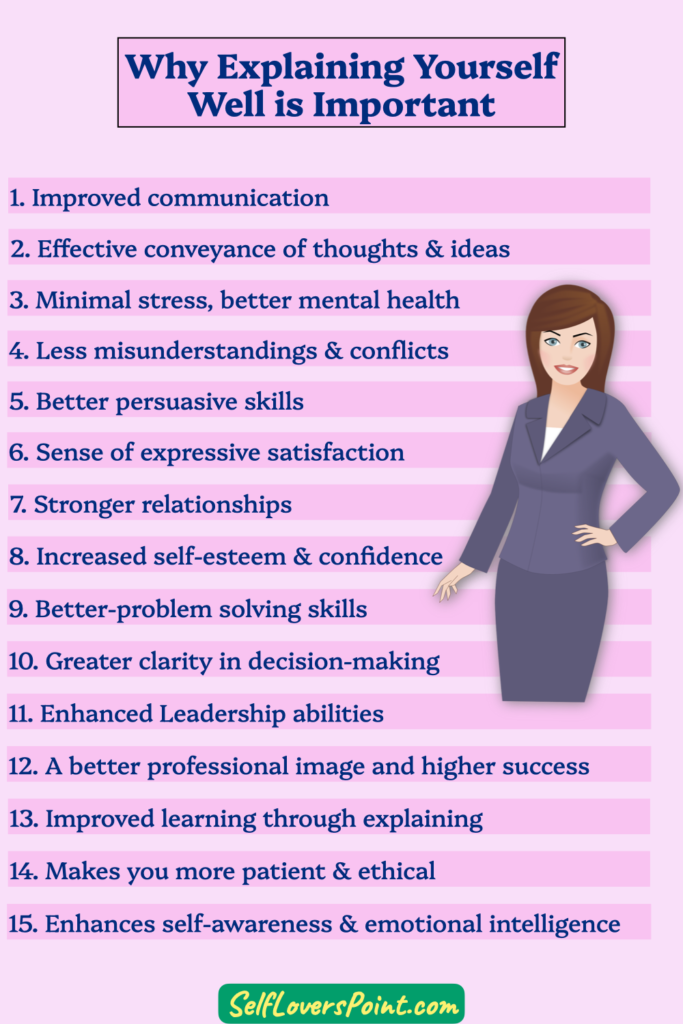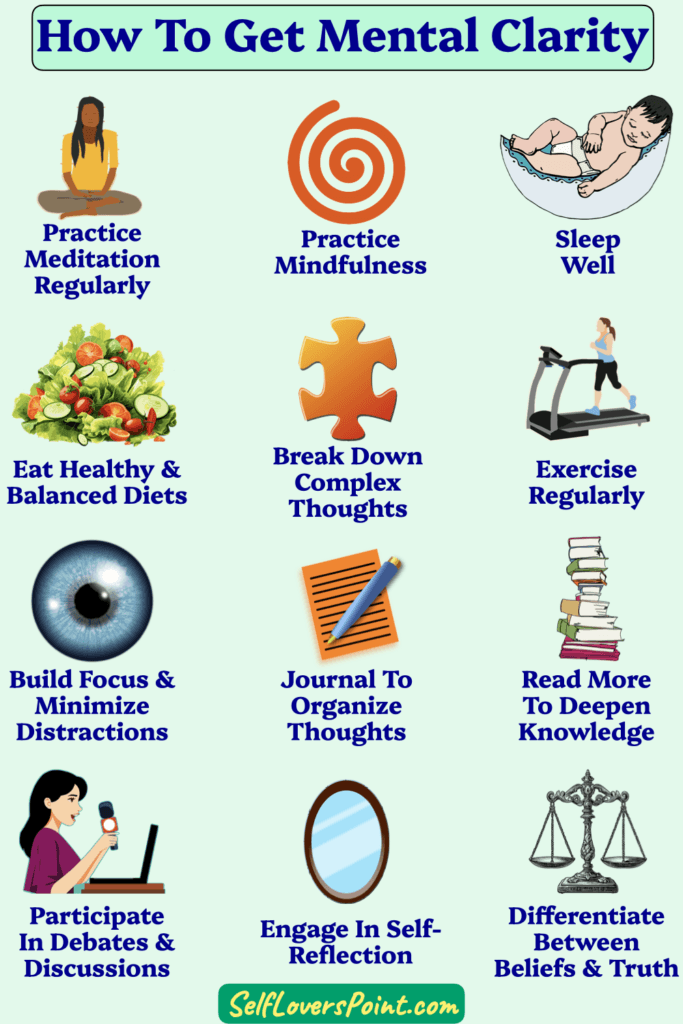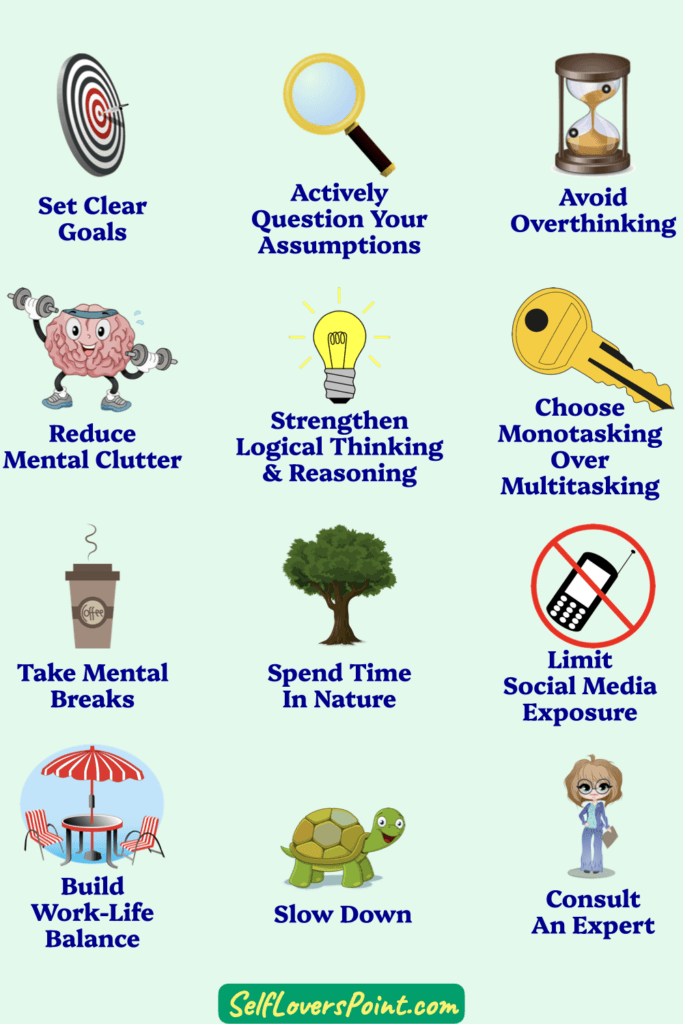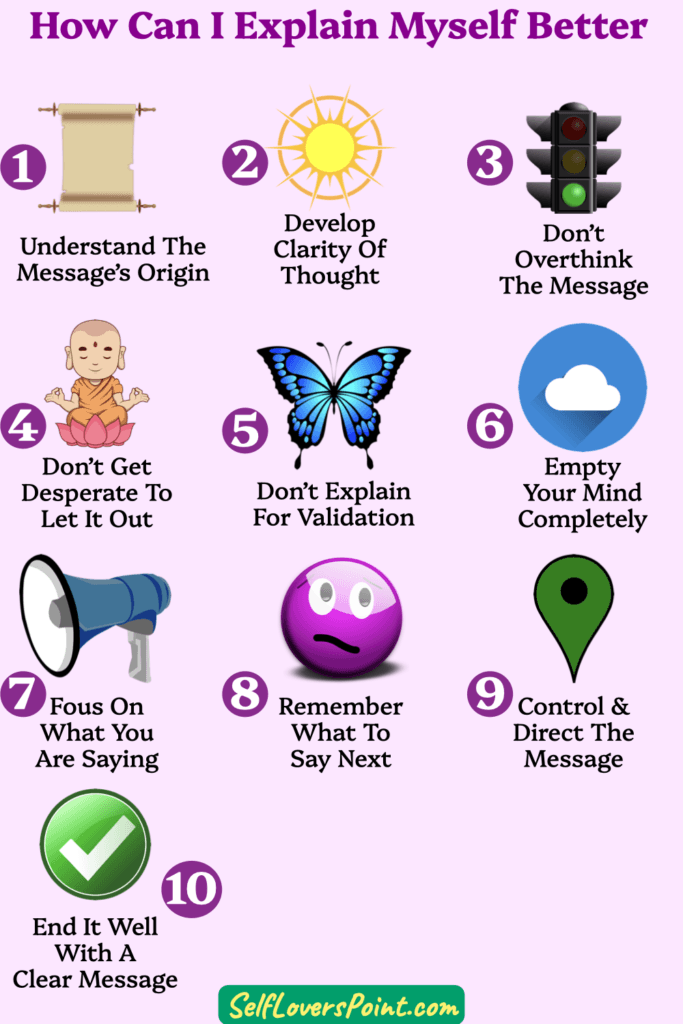Updated On: February 1, 2025
Note: This post may contain affiliate links. If you purchase through these links, I may earn a small commission at no extra cost to you. I only recommend products that I believe can add value to my readers.
Communication – The Most Important Skill
Have you ever gotten stuck while explaining yourself?
Do you often wonder, ‘How can I explain myself better? ‘
Communication is a vital area of one’s life.
When you can express yourself easily and precisely, you feel positive, satisfied, and self-confident. It gives you a feeling of fulfillment as you have successfully communicated your thoughts and feelings to somebody. It also clears your mind of self-doubt and gives you the feeling of completeness. The clear expression of your thoughts lets you create the things you want for yourself in life.
Here is a list of 15 excellent benefits of explaining yourself well.

But when you cannot explain yourself well, life might feel stuck. You struggle with your thoughts, feelings, and emotions, which can make your life miserable. You often feel incomplete and frustrated because you struggle to put your ideas out in the open.
So, communication can make or break your life, and you must learn how to explain yourself well. To do this, you need better control over your mind and thoughts.
Let’s go ahead and explore the various steps to help you explain yourself better.
How Can I Explain Myself Better?

There are 10 simple things you need to do to explain yourself better.
Understand The Origin Of Your Message
The first step that will help you explain yourself better is to understand the origin of the message you want to convey.
If you are going to respond to someone, you first need to understand what they have said to you.
If you are the first to talk, you need to understand the objective behind your message.
When you know the purpose behind your message, words flow effortlessly out of you.
If the objective forms a clear picture inside your head, it shows you have understood the origin of the message you are going to convey.
Develop Absolute Clarity Of Thought

Before you start sharing your message, it’s best first to articulate it in your mind.
So, let words come together and see if they make exactly what you want to say.
Try different permutations and combinations to reach the best possible version of your message.
All this while, remember not to interfere with your natural thought process, as it could distract you and break the natural chain of thoughts.
Additionally, staying calm and avoiding stress will significantly aid the process.
It may seem daunting and very slow right now, but trust me, it will improve significantly with practice.
You can follow this exhaustive list of activities to avoid stress and gain mental clarity.


Doing the above things will reduce confusion and help form a clear message.
(This is an affiliate link. If you choose to purchase, I may earn a small commission at no extra cost to you.)
If you struggle with your thoughts, this impactful book on building thought clarity may help you immensely.
Do Not Overthink The Developed Message
The next step is not to overthink the message you just developed.
We often have the perfect form, shape, and boundary for the things we want to say, but we ruin them by overthinking.
We may choose to overthink a thought to better it, or just out of stress.
Overthinking either makes our thoughts negative or creates a mental mess.
It leads to overdevelopment of what you are going to say, confusing you and rendering it difficult to convey.
So, once you have developed a message that is ready to convey, you must have the confidence to stick to it.
You can also take a few deep breaths to release any stress and prevent overthinking.
If you continue to struggle with overthinking, consider using this helpful workbook.
Do Not Get Desperate To Let It Out

The next step is not to get desperate to let out the thought.
Sometimes, we may get too desperate to put out an opinion or idea.
Desperation makes you anxious and your thoughts unorganized, thus making you unsteady. It’s not good for expressing yourself well. When we are desperate while explaining something, we are in a hurry and not wholly focused on our message.
This may lead to a decline in the quality and clarity of what we say or deliver, thereby defeating the entire purpose.
It might also do a lot of harm to your image as a speaker.
So, practice staying calm while conveying your message.
Do Not Explain To Get Validation
The next step is not to explain for validation, but to pass information.
Many times, when we explain things to people, we talk in a way that is more inclined toward pleasing them rather than exchanging ideas.
We are scared of hurting them, but end up pleasing them or expecting validation and compliments.
In our relentless pursuit of validation, we often end up compromising the message that needs to be conveyed.
Thus, when we are trying to deliver a message, it’s helpful to stay professional, objective, and consistent.
It would help you speak confidently without trying to please, thereby allowing you to express yourself to the best of your ability.
Empty Your Mind Completely
The next step is to empty your mind before speaking.
Explaining yourself is an art.
While you convey your message, you should experience a sense of calm within yourself. Your mind should be free of any tension or distractions. To be precise, while you convey your message, your mind should be empty.
If your mind is filled with the thought you want to convey, it can start coming in its way, and you may not be able to express yourself well enough.
Thus, an empty and calm mind allows you to express yourself well in front of anyone.
It helps you deliver your message with precision and ease.
It might seem difficult to talk when your mind is empty. Let me explain.
Instead of holding the message in your mind, try absorbing its essence into your consciousness. Be spontaneous and talk straight from the heart!
Remember, having an empty mind while talking may require a lot of practice, but once you master it, you will have great control over your thoughts and speech. It will go a long way in helping you express yourself well.
Focus On What You Are Saying

The next step is to focus on what you are saying.
Have you noticed that people who struggle to express themselves often try to talk too fast? Since they do not enjoy the process, they want to be done with it as quickly as possible.
But if they can slow down, enjoy, and focus on what they are saying, their confidence will increase, hence improving their ability to express themselves.
When explaining yourself, always make a point to stay focused on your message. It will help you develop clarity and control over your message, hence giving you the confidence to convey your thoughts effectively.
Keep An Eye On What You Have To Say Next
The next step is to be aware of what you have to say next.
Keeping one eye on what you have to say next keeps you steady and your message safe. It ensures your message doesn’t come with distractions or breaks, hence holding onto the attention of your listener. Keeping an eye on your subsequent words or sentences also lets you deliver even long messages conveniently and effectively.
People who express themselves well not only have control over what they are speaking, but are also aware and in control of what they are going to say next. They have a well-developed chain of thought, achieved through extensive practice, that allows their words to flow effortlessly.
So, you don’t have to plan too much ahead, but you must know what to speak next.
Know Where To Take The Message

The next step is to determine and control the direction of your message.
When you express yourself, your message can easily get out of control and be misinterpreted. It can not only make you anxious but also ruin your image as a person.
Thus, you must determine the direction of the message and deliver it effectively.
To achieve this critical goal, practice your message in advance, if possible, in front of a mirror. Talk slowly and see whether you are delivering the exact message you want to convey. If you notice any discrepancies, review your choice of words and make the necessary adjustments.
Only when you are satisfied with your message, express it to the people you want.
End It Well With A Clear Message
The final step is to conclude effectively by delivering an unambiguous message.
By the time you reach the end of your message, the listener may have forgotten the main message.
Always provide a clear and concise summary message at the end. Remember, the message should be appealing and “loud” enough to stay with the listener. If need be, to make it memorable, you can add emotions to it. People may forget any message, but not one involving emotions.
Thus, when you have made your message memorable for someone, you have expressed yourself well.
Learn The Art Of Expression
Learning the art of expressing oneself is crucial. It can help you come out of low self-esteem, loneliness, and anxiety. It gives you the confidence to accept and love yourself. In short, the ability to express yourself effectively can make your life more meaningful and worthwhile.
And the good news is that it’s not a difficult task!
You have to believe in yourself and do some consistent work on your communication skills.
Here is a visual summary of the article. You can also save it on Pinterest.

FAQs
Why do I struggle to explain myself?
The most common reason why people struggle to explain themselves is anxiety.
This anxiety may be related to a particular task you have to do; it may be general anxiety due to a problematic past, or it may be anxiety about explaining yourself clearly.
The anxiety of explaining yourself well stems from trying to give too much detail.
Due to the extra effort you put in, you can’t explain yourself satisfactorily. In trying to include “everything,” the main message gets lost.
It’s also possible that even though you have explained yourself well, you still feel you did not explain yourself well enough.
Why do I cry when I try to explain myself?
The reason behind crying when trying to explain yourself is often due to suppressed feelings.
These may be feelings you haven’t shared with anyone for a long time, which is very unhealthy.
So, when you decide to open up to someone now, a Tsunami of emotions floods you suddenly.
These emotions overwhelm you by outpacing what you can vent in a given moment through words.
It creates both a sense of desperation and an inability to explain yourself.
Also, the pain hidden in those suppressed feelings of yours is an added reason why you start crying while talking about them to someone.
Why do I feel like I don't understand myself?
There can be two reasons behind feeling like you don’t understand yourself.
First, you have never paid attention to or analyzed the source of your thoughts, choices, preferences, likes, and dislikes.
Alternatively, you have led a life in a monotonous and carefree manner until now, which may be beneficial for your mental health, but not so much for a high quality of life.
Second, you have always lived your life under someone or looked at it from their point of view.
So, you understand that person well, but not yourself.
To understand yourself, you need to develop your personal wisdom & self-belief and start living your life on your own terms.
How is understanding myself important in explaining myself better?
There are two crucial aspects to understanding yourself and explaining yourself better.
First, if you cannot understand your life and its underlying experiences, how can you explain them well to anybody?
So, to explain yourself clearly, you’ll need to know what you want to explain.
The second aspect is related to your speaking skills.
You need to understand and develop control over the various facets of your speech before you can use it well.
First and foremost, you need to have a calm mind so you don’t get entangled in your thoughts.
And a calm mind is the result of self-understanding.
Then, you need to work on and understand your speech well to explain yourself better. Understanding your speech means understanding your natural or preferred style of talking, as well as your limitations.
You must also ensure a good connection and camaraderie between your mind and your speech.
What can I do to understand myself better?
To understand yourself, you need to do three things.
First, you need to review your life story up to this point. It will help you understand what has shaped you and where you come from.
Second, you must analyze essential aspects of yourself, such as your likes, dislikes, fears, strengths, aspirations, successes, and failures. Knowing these will help you understand who you are. Please find out the reasons behind all of them.
Finally, focus on your feelings and track their origins to gain a deeper understanding of yourself. Doing this will help you know the source of your thoughts and actions in the present.
Journaling is an invaluable tool that can be used to gain a deeper understanding of yourself. It will help in self-reflection and bring your deepest feelings and emotions to the fore.
Why do I have a low opinion of myself?
A low opinion of oneself can have three possible reasons.
First, living in an abusive environment as a child. A traumatic childhood can impact your mental health and your ability to be positive and confident.
Second, a feeling of inferiority develops when you are not encouraged enough as a child. So, if your parents did not instill confidence and self-belief within you when you were small, you may have developed a low opinion of yourself.
And third, failures and the inability to achieve your objectives can sometimes lead to a low opinion of yourself.
The good news is that you can overcome these reasons by taking steps in the right direction, such as seeking expert help or counseling.
How do I start feeling better about myself?
Feeling better about oneself can be done in five time-tested steps. These are:
- Stop giving importance to people’s opinions about you, especially the ones that bring you down.
- Do not entertain negative thoughts. When they visit, do not let them win. Make it a point to add a valid, positive, and convincing argument in front of them.
- Train yourself to cultivate positivity by using positive affirmations and self-talk whenever needed.
- Back positive thoughts with consistent positive actions to make positivity tangible and real for yourself.
- Be kind to others and help them whenever you can. Service to others is always a powerful tool to feel better about yourself.
Why can't I explain how I feel?
The inability to explain your feelings can be due to two reasons.
First, a lack of developed personal vocabulary. So, your mind may generate feelings for what you are experiencing, but due to underdeveloped speaking skills, you may not find appropriate words to express them.
It’s also possible that you lack the necessary patience to convert feelings into words.
Second, certain feelings cannot be expressed in words. When you are excessively sad, you will often struggle to find the words.
In such cases, nothing is wrong with you or your speaking skills; it’s something beyond human control.
Why do I feel like I can't speak up for myself?
There can be two reasons behind not being able to speak up for yourself.
The first is fear, and the second is shyness.
Fear is that of being wrong or judged by others. You may also fear that speaking up for yourself may not be well-received, and you may encounter opposition and unnecessary arguments.
Remember, you should not get into arguments, but putting your thoughts forward in self-interest is necessary.
Shyness is an extreme fear of being judged and prevents you from fully developing your personality.
You should practice ignoring people’s expectations or judgments. Be okay with getting things wrong sometimes, even if some people laugh at you.
Speaking your mind is essential to living a peaceful, confident, and fulfilled life.
How do I get better at explaining myself?
The objective of what you want to explain is of paramount importance.
So, please remember what you’d like to achieve with all your communication.
Clarity of objective will help your emotions align with your words, giving them a natural flow and appeal. If you have time, you can also practice it in front of a mirror.
Be in control of your emotions and remain patient while speaking.
Do not try to convey too much detail or overemphasize your message.
Reading the listener’s expressions is also essential so that you can clear their confusion or doubts.
How do I believe in myself?
Belief is a very important aspect when trying to explain something to someone. Only if you believe in what you are saying will the other person believe it and take it seriously. And to believe in what you say, you must first have faith in yourself and your abilities.
You can do this by staying positive and indulging in positive self-talk. You can also use positive affirmations, such as ‘I am a good communicator’ and ‘I convey my messages with clarity and precision.’
Next, practice what you want to explain so that you feel confident while delivering your message.
As you express yourself with confidence and success, your self-belief will continue to grow.
How to build self-love?
When you feel you cannot explain yourself well, your self-love may be in danger. The dissatisfaction can very quickly turn into self-loathing.
Thus, it’s essential to learn to build self-love within you so strong that no challenge can threaten it.
To cultivate self-love, you must first be determined not to give up in the face of challenges.
If you cannot explain yourself well, believe that one day you will be able to.
Do not pay attention to external negativity or your own negative thoughts.
Stay positive by using positive self-talk and affirmations, and continue to practice explaining yourself more effectively.
During this time, to avoid frustration, do things you like doing.
Pursue a dear hobby, spend time with the people you love, do meditation & Yoga, make a self-care routine and follow it, or watch movies and shows that motivate you.
As you develop the habits of staying happy and loving yourself, you will notice that your explanation skills are improving.
Soon, the day will come when you will master both explaining yourself and self-love.
Check out these self-love activities and habits if you want to learn to love yourself more.




